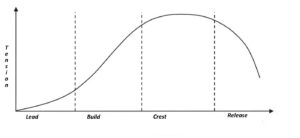Has Empty Nest Syndrome Clipped Your Wings?
Empty nest syndrome – the grief we feel when our kids have grown and flown the coop – is real. Most of us have a personal story. The question is, how do we deal with it when it starts to feel…like that? If empty nest syndrome has clipped your wings, it’s time to act.
Dealing with it
I have my own story about all the feels that happened when my last kid left for college, all the pets had passed away, and my second divorce got finalized. Let’s not go there again, please! The thing is, we all need to feel free to feel what we feel, without anyone else’s judgment, thank you very much. So how do we feel our way beyond the syndrome, in safety, and with expectations of better things? Years of psychotherapy? Coaching? Psychedelics?
Look: it’s normal to feel sad when there’s a good reason to feel sad. I’ve found that what works well, at least for the thousands of people I’ve performed for or listened with is that we often bottle up the feels until they sort of run over on us, which normally happens at the worst possible moment(s). At weddings. Gradation parties. Sometimes years later at our own (or someone else’s) retirement party. That can either be a beautiful or embarrassing thing, trust me.
We’ve just got to deal with it, this grief over a major life change that happens when we’re suddenly all alone in the house that was, just recently, much more full of the life we loved.
One way to go
I was in therapy for a long time. Then I went back to deal with some layers that weren’t visible before. I’m a fan. If therapy helps, please do that. I learned a lot about how I’d been stuffing big emotions and how that wasn’t good for me. And I learned how to safely feel that stuff and, with practice, I learned that the stuff I didn’t want to feel, the more I understood that it was OK, would flow away. Being musical myself, I quickly grasped why, when I was but a child, I loved to perform big Classical and Romantic piano pieces. Thank you, Therapy.
And I still feel bigly, particularly anger. And I’m learning that anger, too, was part of the content of and transportation in those same hugely satisfying Beethoven Sonatas, Chopin Etudes and Waltzes, and Rachmaninoff everything-he-wrote. Perhaps this is part of why I love metal and rap. But I digress…
Other than therapy, there’s coaching…
Beyond therapy, there was coaching. I’ve had some great mentors, and some friends with incredible insights. Although I’ve never paid for a grief coach, I’ve dropped plenty of cheddar on coaches who helped me with the symptoms of grief and anger without ever having to go deep and resolve those feelings at my core. Nothing wrong with that! Coaches are standing in for much of what many of us never had as kids: perfect parents. Not that parents whose kids get empty nest syndrome when their kids fly away have done anything wrong, they just weren’t perfect…because perfect’s not part of the definition of “parent.”
Psychedelics?
It’s another way to deal with stuff, isn’t it? For some, anyway, but not all of us, taking a trip to unity consciousness and ego death is a reliable way to step away from the empty nest. Trouble is, the emptiness gets closer to the surface when our guard is artificially lowered by ayahuasca, psilocybin, mescaline, 5MEO-DMT, or whatever the latest depression study is finding these days. It’s a way not for everyone, and guidance is critical, especially for hi-clinical people who expect that they can somehow control what happens with psychedelics.
An additional possibility
For as long as there have been kids there have been empty-nested parents. Our species, with its superior intellect, believes that it can overcome perfectly good emotions, such as grief, anger, and fear…wait! You don’t like feeling those? I mean, who does? Still, they’re just chemistry that has been keeping our species relatively safe for many thousands of years. Those feelings are Biblical, in epic ways, just to state the obvious, and they’ve caused alla us a heap of trouble too, especially when they get bottled up in a tyrant or megalomanic who wants to rule the world.
If your job, like mine, is creating space where big emotions can rock around us in safety, you’ll get what I’m about to say next (and for astute readers, what I’ve said already a couple of times: we are meant to be able to feel all the feels. The mistake we make is to think – to think! – that we can think our way out of doing so.
We like to take our feels out for a concert or to smash plates or toss axes. We sometimes drive angry, work sad, and vote scared. And, it doesn’t have to be that way. Even though they can be stuffed, sublimated, or repressed, feelings will out. Empty nest syndrome is one way they get out of us, so why not make a safe landing zone for them, let them flow, and enjoy the relief that comes after?
Emotional Release Therapy
I’m not talking about emotional release therapy with its built-in bias of “negative” emotion and its screaming into pillows and using up multiple boxes of tissue in an hour. Emotions are just chemistry, right? And, if we can choose how to experience them, we might as well choose a “positive” experience (just to stay with the lingo for a moment).
Emotional Intelligence
Emotional intelligence – really intelligent emotional experience – ought to allow all the feels without judgment (because they flow and go that way) and yet it doesn’t really do that does it?
Please, if you’re a fan of ERT or EQ, don’t hate on me. Those tools have really helped a lot of people.
So what’s the additional possibility?
Music
There’s plenty to think about in music if that’s your thing. However, think about this for a moment: before there were therapists and clinicians, and even before there was mathematics, musicians were the doctors, the wisdom keepers, the lawyers, the scientists, the magicians. When the village was in trouble, they called the village musician. Why? To help release the emotional charge around that trouble, for starters. Clearly, this was a long time ago, before the Age of Reason, which has done so much for so many since then…except for Empty Nesters like you and me. Back in the day, you got to really feel it, right alongside a bunch of other people like you, and everyone understood the ritual of the empty nest.
Not so much anymore, although we’ve got plenty of popular music that echoes the issue. We all know this one:
There are any number of “top xx” lists of songs about kids growing up, and they happen in every single genre out there. My psychologist friends can tell from the lyrics of almost any song exactly what the composer is dealing with – it’s really obvious who’s got issues just from the words they sing, and what those issues are. No secrets here, even when they appear to be under the surface to many of us. How do you think the very best of the Top 40 got to be that way? Issues! Artists use them as fuel.
You can too.
How? Give yourself some music. Intentionally. Not a multi-hour playlist. Find a few songs that you need and really give yourself time to inhabit them. If that’s new to you, join this Meetup to learn how music really works (hint: it’s not a head-brain thing!).
Moving energy with music
I’ve been at this a long time. In fact, more than 50 years. If moving some of the empty nest energy with music in a private 1:1 session would help you, please contact me. You’ll be surprised how effective the music you already love can be. And you might just discover a village of others who have learned to love their empty nests in a new way, which includes loving our kids more, too, as we watch them become the successful adults we messed up attempting to raise, and begin to understand that, actually, they’re going to be fine.
And so will we.
So, if empty nest syndrome has clipped your wings, take heart (I do mean that metaphorically!). There’s beauty in that empty space waiting to be discovered. It’s your next purpose in life. Embrace it.
_____________________________
Over the course of more than 40 years of paying attention to how music works on us, Bill Protzmann has rediscovered the fundamental nature and purpose of music. Bill has experimented with what he learned through performing concerts, giving lectures, facilitating workshops, and teaching classes. For example, he first published on the powerful extensibility of music into the business realm in 2006 (here and abstract here). Ten years later, in 2016, he consolidated his work into the Musimorphic Quest. In this guided, gamified, experiential environment, participants discover and remember their innate connection to this ancient transformative technology. Also, The National Council for Behavioral Healthcare recognized Bill in 2014 with an Inspiring Hope award for Artistic Expression, the industry equivalent of winning an Oscar.
Musimorphic programs support\ wellness for businesses, NPOs and at-risk populations, and individuals.



